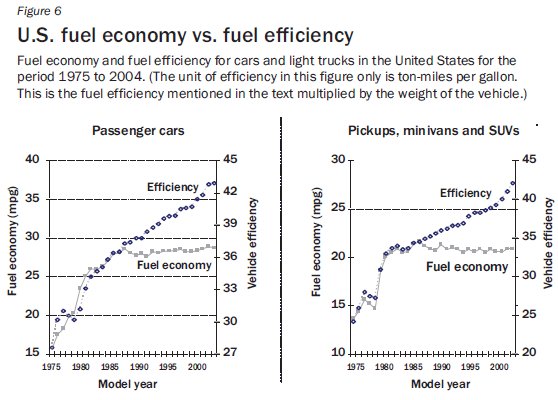Realitybase has obtained this exclusive transcript of an interview of Secretary of Defense Donald Rumsfeld in late May 2003 about the Iraq war plan and the dismantling of the Iraqi army.
Rumsfeld was interviewed by his dentist, Dr. Painless, while sedated with sodium thiopental. Not a lot of dentists use this drug anymore, but Painless likes it because patients don’t feel pain and because the “truth serum” properties let him elicit candor while he’s literally pulling teeth. Fortunately, long-time dentists like Painless can understand what a patient is saying with two hands in his mouth. Nevertheless, Realitybase regrets that there a few places where even Dr. Painless could not decipher the audio recording.
Painless: Congratulations on your victory in Iraq. That was a great picture of the President standing on the carrier deck in front of the big “Mission Accomplished” banner.
Rumsfeld: Thank you.
Painless: By the way, what was the mission exactly?
Rumsfeld: Regime change. Kill or capture Saddam and his family and top lieutenants, install Ahmed Chalabi as the head of a new government, and come home. That’s it in a nutshell.
Painless: What about the weapons of mass destruction? We were all really worried about those. Did we find them and get them under control?
Rumsfeld: No need to. The Iraqi army has them.
Painless: That doesn’t sound good. Wasn’t the purpose of the invasion to prevent the Iraqi army and Al Qaeda from threatening other nations with those weapons?
Rumsfeld: No, I just told you. The mission was regime change. Of course, the Iraqi army will tell us where all that stuff is, and we’ll keep tabs on it. Not to worry.
Painless: So is that why the Iraqi military and police are not stopping the looters? They’re all guarding the weapons of mass destruction?
Rumsfeld: The media are being so irresponsible in exaggerating that stuff! Besides, US and coalition troops are all over the only strategically important places—the oil ministry and oil facilities.
Painless: I’m just a dentist, but wouldn’t it make more sense for coalition troops to be “all over” the weapons of mass destruction—as well as the stockpiles of conventional arms—and have the Iraqis secure the infrastructure and prevent all that looting?
Rumsfeld: [Undecipherable.]
Painless: I heard we’re only going to have about a third as many troops in Iraq as General Shinseki said we would need to secure it. How are you going to make that work?
Rumsfeld: Shinseki was right that we don’t have enough troops in all of the Army, Marines, and National Guard to run the place. But we’re not staying. We never planned to stay. We’re turning security and reconstruction over to the Iraqis as fast as we can. Tommy Franks is retiring, and General Whats-His-Name will supervise the redeployment home, starting in less than 90 days.
[Editor’s note: That this was the plan was confirmed in the New York Times, Fateful Choice on Iraq Army Bypassed Debate: “The plan was outlined in a PowerPoint presentation that Douglas J. Feith, a senior aide to . . . Rumsfeld, gave a National Security Council meeting that Mr. Bush convened on March 12, eight days before the invasion began. Republican Guard units, the forces deemed most loyal to Mr. Hussein, were to be disarmed, detained and dismantled. But the rest of the army would be retained. Three to five of the divisions would be used to form the ‘nucleus’ of a new Iraqi Army, according to a copy of the slide, which was obtained by The New York Times. Other Iraqi troops would be used as a reconstruction force to rebuild the nation.”]
Painless: But aren’t Saddam Hussein and dozens of his top officials still on the loose? If we leave, won’t they just come out of hiding and take over the army, the WMD, and the government again?
Rumsfeld: Well, that is a problem, and we’re working on it.
Painless: So, what was the contingency plan for this—in case Saddam and his henchmen were not rounded up during the battle and it was necessary to stay for a while and try to run the place without enough troops?
Rumsfeld: As you know, you go to war with the war plan you have. It’s not the war plan you might want, or wish to have at a later time.
Painless: So, what are we going to do?
Rumsfeld: Already done it. Jerry Bremer issued orders on May 23 dissolving the Iraqi army and throwing all the Baathists out of the Iraqi government.
Painless: Yeah. I heard about that. Tell me, what did the President think about that big change in plan so soon after “Mission Accomplished?”
Rumsfeld: Jerry told him he was going to do it, and the President agreed. The President believes in delegating everything to his field commanders.
[Editor’s note: The President’s prior approval was also reported in Fateful Choice on Iraq Army Bypassed Debate.]
Painless: But Bremer issued those decrees before he had been in Iraq for even two weeks. Did the President think he was already an expert? And what did our generals in Iraq think about that?
Rumsfeld: [Undecipherable.]
Painless: Just one more question. If the Iraqi army doesn’t exist anymore, who’s controlling the weapons of mass destruction?
Rumsfeld: Not to worry. We have really good intelligence on that. We know right where they are, and our troops will secure them.
Painless: OK, all done here. Take some Tylenol if you have any discomfort. I need you back here in a week.
Rumsfeld: Why do I have to come back? I already had my wisdom teeth out years ago.
Painless: Obviously. I need to do a little more work on your chewing teeth. I’ll use laughing gas next time.
 Thursday, April 24, 2008 at 05:00PM
Thursday, April 24, 2008 at 05:00PM 
 Skeptic
Skeptic
 Skeptic
Skeptic







